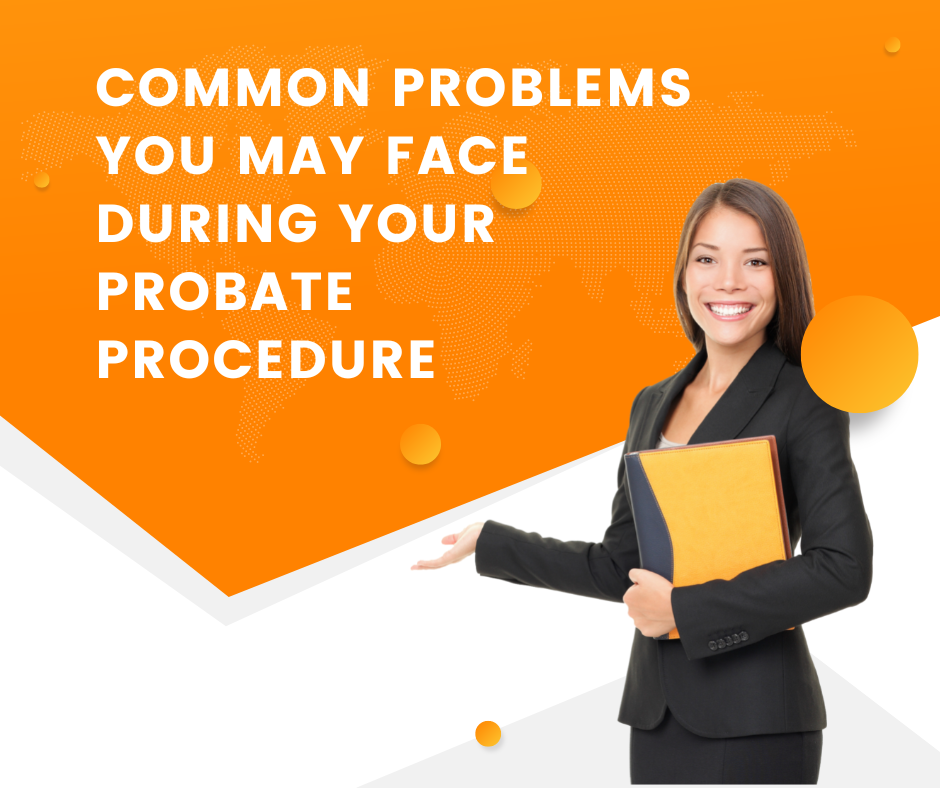
The probate process can be complicated and navigating it can be difficult. From the initial paperwork filing process to the final asset distribution, many steps need to get taken along the way. That’s why it’s essential to understand the common problems like how long does probate take in NSW and other issues you may face during your probate procedure. Read on for more details.
1. Cannot Find the Will
To get a grant of probate in SA, your executor requires the Will. If they don’t already have it, the best place to look would be Will’s registry kept up by the law. They could also contact the attorney who worked with you to draft your Will.
If the original Will cannot be located, the probate laws allow for the submission of a copy or draft of the Will. If not, the rules governing intestacy will be in effect, and it will be as if you never made a Will.
2. The Executor Declines to Fulfill Duties
Finding your assets and beneficiaries, paying your taxes, debts, and creditors, distributing your property, settling your affairs, and requesting probate are just a few of the executor’s responsibilities.
Because the position requires a lot of labour, your chosen executor should avoid carrying out the duties you have assigned to them. Another factor that makes an executor inappropriate for the job is that they could act unfairly to further their self-interests.
You should be aware that the court will have to choose a replacement executor if you are not. The listed executor and inquire whether you can petition for a grant of probate.
Due to the same, the probate process may significantly get delayed. So, you must pick the correct executor when you are creating your Will. Inform them of their responsibilities and your expectations. You can also choose other executors who would take over if your initial pick decides not to take on the role.
3. Contest of Will
Arguments between family members or beneficiaries frequently happen throughout the probate procedure. While this is always possible, it is especially true when you have a complicated family structure and substantial assets in your estate.
Some people can contest Will’s legality and question whether it accurately reflects your desires. After then, you will have to rely on your executor to provide additional proof that your Will is valid and enforceable following probate law.
To prevent family disputes, you might designate a probate lawyer to act as your executor. This person will be able to conduct themselves professionally and without prejudice against any of your dependents or family members.
5. Not Handling Creditors
Costly demands from creditors throughout the probate procedure may need to get paid from your estate. Your executor must maintain precise records to assess the claims’ legitimacy and guarantee that your creditors receive their money on schedule.
Waiting too long to start the probate procedure could lead to more aggressive creditors. Additionally, it may result in the estate owing additional taxes and debt. To prevent this, you may hire professionals to manage your estates, such as an accountant or a probate lawyer.
6. Estate Value Dispute
It’s crucial to value money, property, and other estate assets fairly. Determining whether estate taxes should be assessed and in what amount is why correct assessment is crucial. Questions of valuation become quite essential when an estate is near the figure or threshold restrictions for estate taxes.
7. Validity of Will
Occasionally, heirs (or potential heirs) think a Will is invalid because it was drafted under duress or with dishonesty. According to the Will, anybody who wants to contest the validity of the Will must provide evidence of why the decedent’s intentions shouldn’t be honoured.
8. Allegations on the Executor
Fiduciary duty is the most significant legal obligation. An executor of a Will has a fiduciary duty to handle assets wisely for estate benefit and beneficiaries. Victims damaged by the breach of duty may be entitled to file a claim for damages if the executor mismanaged funds, steals from the deceased, or otherwise fails to fulfil his duties.
9. Delayed Distribution of Assets
One of the most common problems people face during probate is the delayed distribution of assets. The timeline for settling an estate can vary widely. It depends on several factors like how much property needs to get inventoried, if there are any disputes among beneficiaries or creditors, or if there are tax issues that need to be settled before asset distribution. It is not uncommon for the entire process to take up to two years or longer in some cases.
10. Unexpected Costs and Fees
Another issue that may arise during probate proceedings is unexpected costs and fees. Depending on the complexity of the estate, there may be various costs associated with court and attorney fees, appraisals, accounting services, recording charges, etc., that must all get paid out before the estate distribution of assets. It is essential to keep track of all expenses as they come up so that you don’t get a surprise bill at the end of the process.
Fix all Probate Issues with Experts of Probate Consultants
Probate is a complex and time-consuming process you must pick along the way. To ensure that everything goes smoothly and according to plan, it’s essential that you understand some of the common problems you may face during your probate procedure, such as delayed distribution of assets, unexpected costs and fees, and potential disputes among beneficiaries. With knowledge comes power—so make sure you know what you’re getting into before beginning your probate journey! Get in touch with our expert Probate Consultants, and let us save you from all these probate issues.



